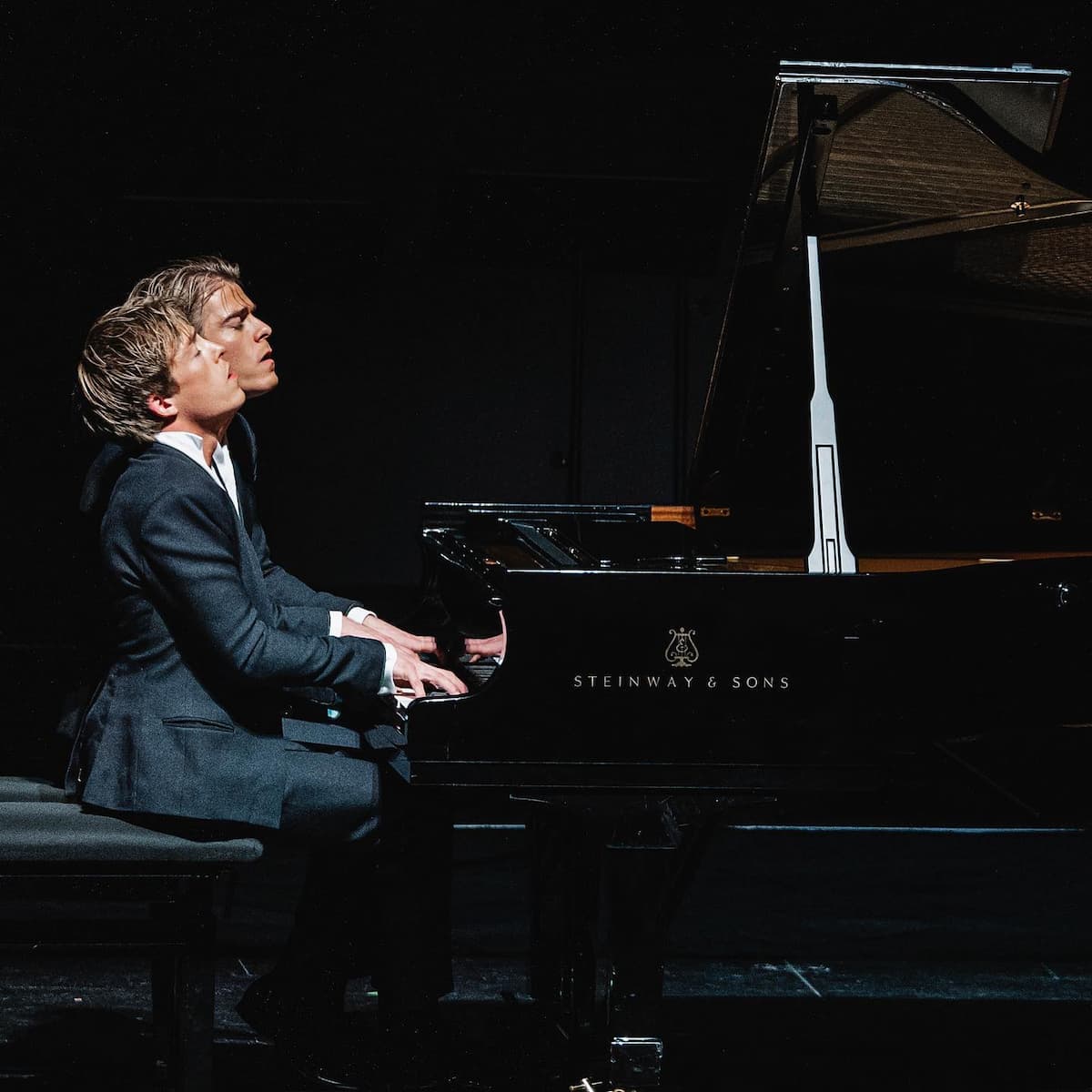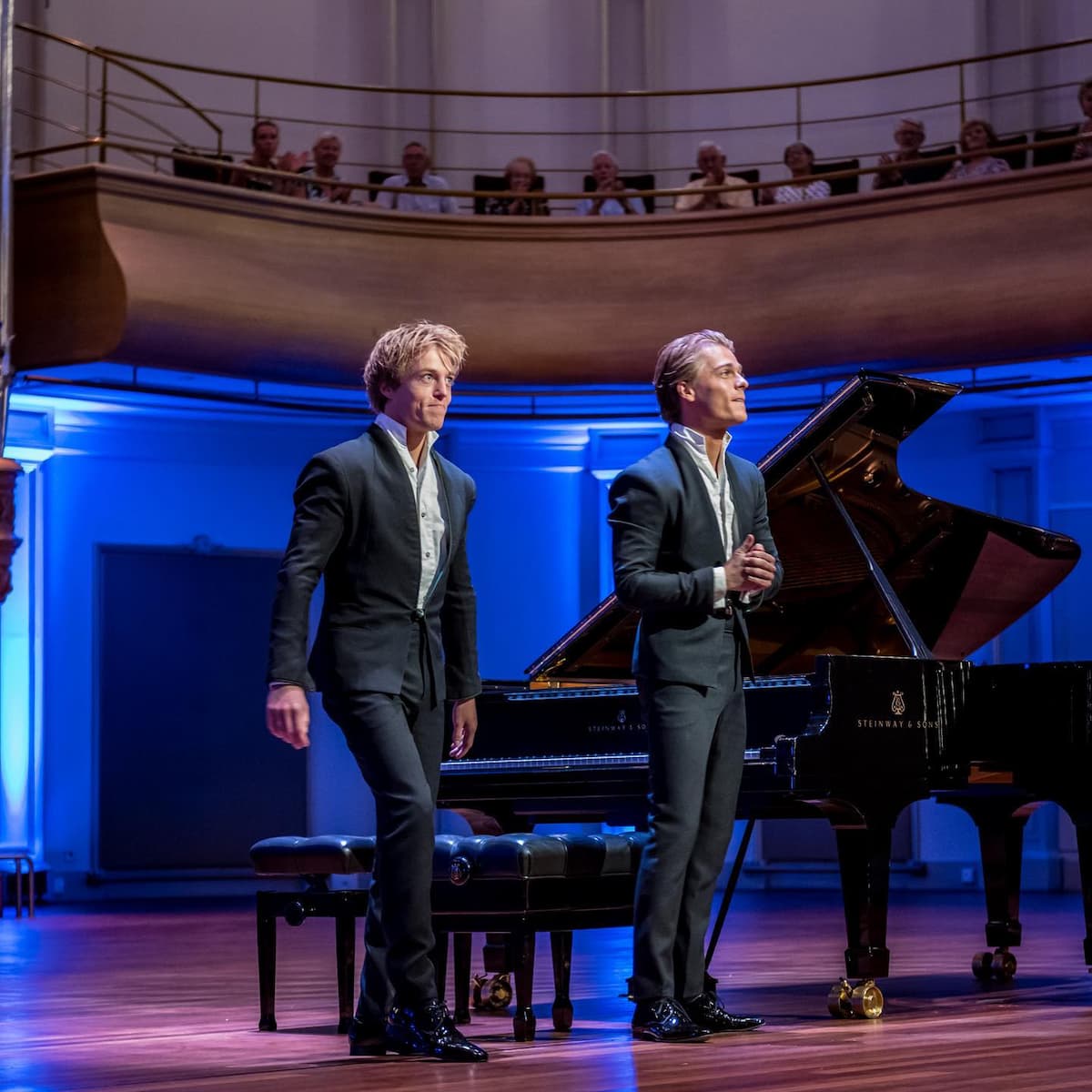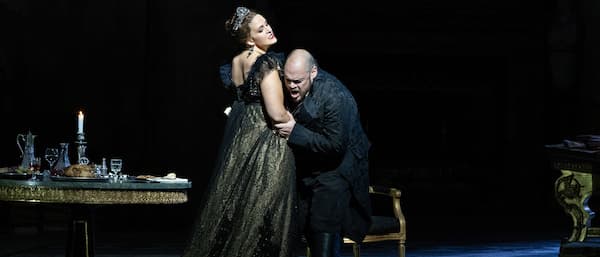The piano duo Lucas and Arthur Jussen, widely celebrated in their home country from an early age, have made history as the first Dutch musicians to sign with Deutsche Grammophon. This time, they visited Hong Kong with a multifaceted programme featuring works by Bach, Mozart, Ravel, and Stravinsky.

© Lucas & Arthur Jussen
Greeted with ebullient applause from an unusually animated audience, the Jussen brothers started with Mary Howe’s transcription of Bach’s “Schafe können sicher weiden” (Sheep may safely graze) from Was mir behagt, ist nur die muntre Jagd, BWV 208. It possessed serenity, refinement, and purity in its tonal colours, together with careful delineation of the inner voices. Bach’s Nun komm’ der Heiden Heiland, BWV 599, and Sonatina from Gottes Zeit ist die allerbeste Zeit, BWV 106 (both arranged by György Kurtág) were likewise rendered with pleasing tonal control, somewhat conjuring an atmosphere of contemplation.
Lucas & Arthur Jussen – Bach: Schafe können sicher weiden, BWV 208
Mozart’s Sonata in D major for Two Pianos, K. 448 enjoyed an outburst of energy and vivacity in the outer movements, courtesy of the Jussen brothers’ impressive dexterity. The hall was imbued with an air of joviality in the first movement, Allegro con spirito, with the occasionally mischievous nature of Mozart’s music aptly captured. The third movement similarly radiated brilliance, but the Andante could have benefited from a more cantabile approach in the way phrases were shaped. At times, the two pianists seemed to move more than their music did — there was so much swaying back and forth, head bobbing and twisting of torsos beyond the mere purpose of mutual communication.
Mozart: Sonata for Two Pianos in D, KV 448 – Lucas & Arthur Jussen
An awkward interruption occurred before Ravel’s La Valse when an intermission was mistakenly announced, prompting some audience members to prematurely exit the hall as the duo reappeared on stage. Despite their technical prowess, the Jussen brothers’ interpretation as a whole was lacking in imagination — from the emergence from darkness to the frenzied transmutation into an eventual apocalypse in the piece, it was more an exhibition of “virtuosity” through banging on the keyboards than communication of the musical imagery. The almost hallucinatory fleeting impressions of “an immense hall with a whirling crowd” and “the light of the chandeliers burst[ing] forth”, as Ravel himself put it, were simply not there.

© Lucas & Arthur Jussen
Following the actual intermission, the Jussen brothers tackled Stravinsky’s The Rite of Spring transcribed for two pianos with greater conviction. Their extraordinary feat of playing from memory, paired with precision and rhythmic vigour amidst polyrhythms and tempo changes, was praiseworthy. The razor-sharp sense of rhythm and clarity were particularly striking in Augurs of Spring and Dance of the Earth in Part I, as well as Sacrificial Dance in Part II. However, it takes more for this transcription to work. Attempts to imitate orchestral timbres were met with partial success – the winds in Spring Rounds and the timpani at the outset of Dance of the Earth, for instance, were not readily discernible. More importantly, the performance was too “cultivated” and lacked the unfettered wildness and primitive essence inherent to the music.
Stravinsky: Sacre du Printemps – Lucas & Arthur Jussen
Nevertheless, the first encore, Igor Roma’s Strausseinander, was such a delight! As its name suggests, this paraphrase or fantasy draws inspiration from Johann Strauss II’s Die Fledermaus, yet is penned in a “modern” harmonic language. Delivered with impeccable pianism and replete with wit and electricity, this was certainly the pinnacle of the recital.
Roma: Strausseinander ∙ Lucas & Arthur Jussen
The concert was bookended by the third Bach work from the first half, Sonatina from Gottes Zeit ist die allerbeste Zeit, concluding the evening with tranquillity and quietude.
For more of the best in classical music, sign up for our E-Newsletter

